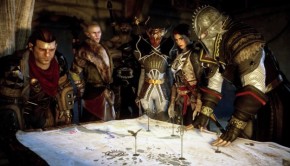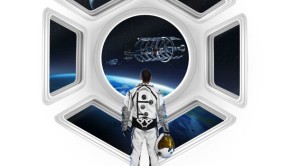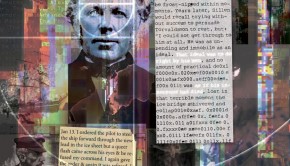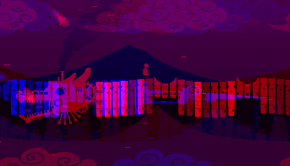Continue?9876543210: The Not Yet
 Roguelikes are obsessed with death.
Roguelikes are obsessed with death.
They kill you repeatedly. Sometimes slow, usually quick. Do something stupid and you die. Play smart and you still die. That’s always the story: you have failed in your quest. YOU DIED. And yet the genre flourishes. Why do people return? Mainstream games have been neutered completely. Perhaps roguelikes are all we have left. Defeat well earned satisfies more than hollow victory. What is reward gained without struggle? What is a life lived without death?
Continue?9876543210 is a philosophical roguelike about death. You, the playersprite, have failed in your quest. Soon, the Garbage Collector will remove you from RAM. But for now, you can wander the digital hinterlands. It is time to seek meaning in your incomplete story.
Always incomplete. A “complete” playthrough is impossible. There are six possible playersprites, you are one. There are 11 stages, you will see six. You have no choice in these matters. Already, things are out of your control. You need to accept this.
 The stages reflect creator Jason Oda’s own sojourn through South America and New Mexico. Deserts, trailer parks, and mining towns. Jungles and rivers. In each stage, you explore buildings and speak with NPCs. You return stolen items to shrines, complete riddles, and speak with strangers. This invokes the forces of creation and destruction: your lightning, your prayer. Lightning destroys barriers, and you progress deeper into the recesses of memory. Prayer builds shelters, and you have a place to wait out the coming storm. Every third stage, the full fury of the Garbage Collector is unleashed upon you. Without shelter, you will die. This is the struggle of the roguelike distilled into its two opposing elements: life and death, lightning and prayer. Balance is key to your continued survival.
The stages reflect creator Jason Oda’s own sojourn through South America and New Mexico. Deserts, trailer parks, and mining towns. Jungles and rivers. In each stage, you explore buildings and speak with NPCs. You return stolen items to shrines, complete riddles, and speak with strangers. This invokes the forces of creation and destruction: your lightning, your prayer. Lightning destroys barriers, and you progress deeper into the recesses of memory. Prayer builds shelters, and you have a place to wait out the coming storm. Every third stage, the full fury of the Garbage Collector is unleashed upon you. Without shelter, you will die. This is the struggle of the roguelike distilled into its two opposing elements: life and death, lightning and prayer. Balance is key to your continued survival.
 But no matter how well you play, you can only hold out for so long. In the end you will die.
But no matter how well you play, you can only hold out for so long. In the end you will die.
Continue?9876543210 is more poem than game, more art than math. It is willfully inscrutable and softly incomprehensible. The writing recalls Superbrothers: Sword and Sworcery EP, brief beautiful lines that inhabit the twilight between haiku and tweet. The tone recalls Kentucky Route Zero‘s weary and grounded magical realism. The simple voxel artwork is evocative and effective. The soundtrack is haunting and stirring. There is so much to love about this game it hurts.
 And yet… in the moment-to-moment, the game often disappoints. Unbelievably floaty, awkward combat, little better than swap-meet shareware. Collision errors that result in getting stuck on stairs or falling through rails. Deaths that come not from failure but incompetence. Continue?9876543210 is The Seventh Seal transferred terribly; Camus’ Stranger printed on smudged newsprint. It may be easy to love but it is hard to recommend. There is so much, but to love this game hurts.
And yet… in the moment-to-moment, the game often disappoints. Unbelievably floaty, awkward combat, little better than swap-meet shareware. Collision errors that result in getting stuck on stairs or falling through rails. Deaths that come not from failure but incompetence. Continue?9876543210 is The Seventh Seal transferred terribly; Camus’ Stranger printed on smudged newsprint. It may be easy to love but it is hard to recommend. There is so much, but to love this game hurts.
 And yet. This is a personal and ambitious title that directly deals with themes rarely seen. The inevitability of death, a passage that can be delayed but never denied. The healing nature of quiet reflection. The way that want can weigh down your soul. The importance of letting go what can’t be changed. The cry we all share when we face the endless void: not yet! Not yet! And still it comes. We can’t stop death. We can only accept it.
And yet. This is a personal and ambitious title that directly deals with themes rarely seen. The inevitability of death, a passage that can be delayed but never denied. The healing nature of quiet reflection. The way that want can weigh down your soul. The importance of letting go what can’t be changed. The cry we all share when we face the endless void: not yet! Not yet! And still it comes. We can’t stop death. We can only accept it.
Actually, I don’t think this game is about death at all. It’s about life.











